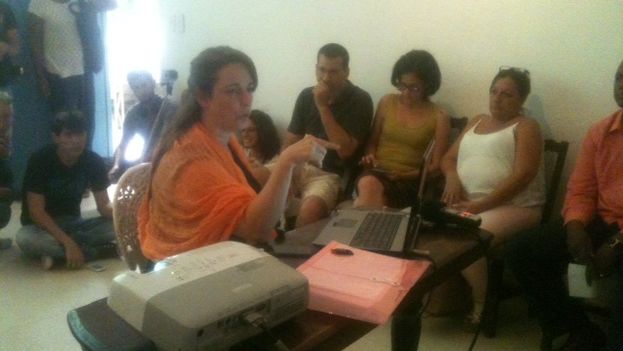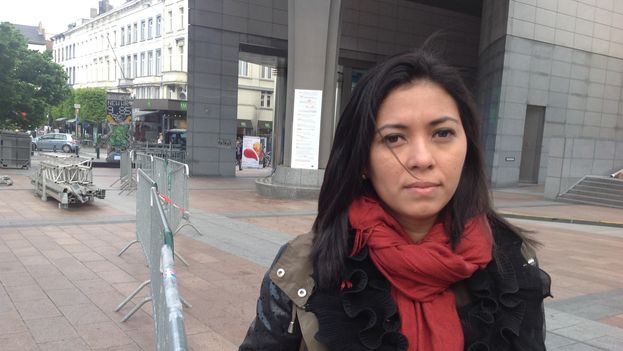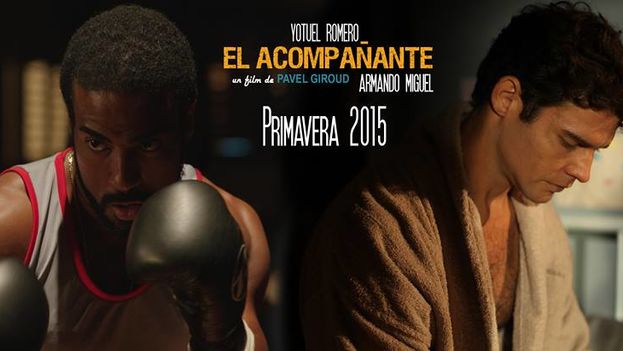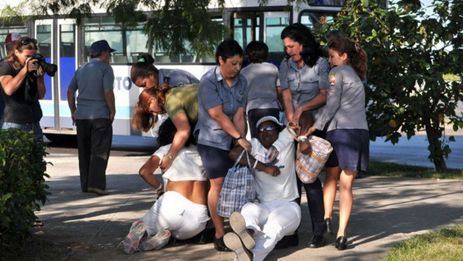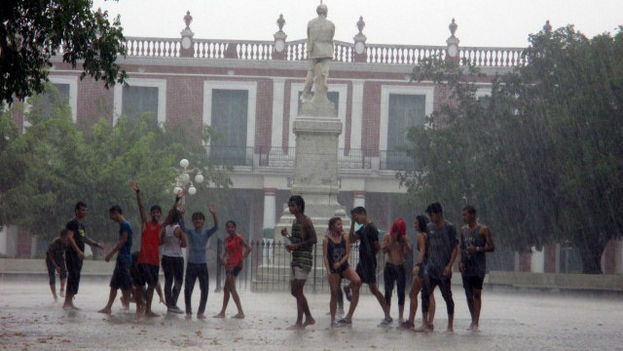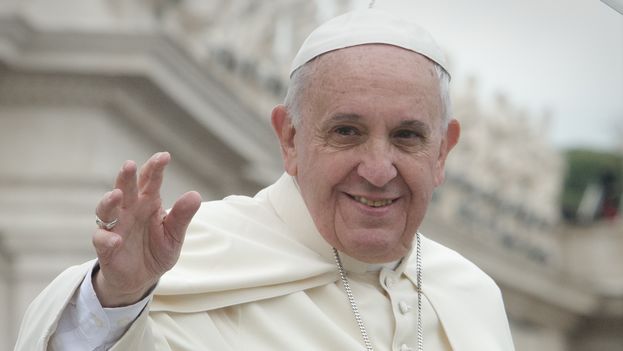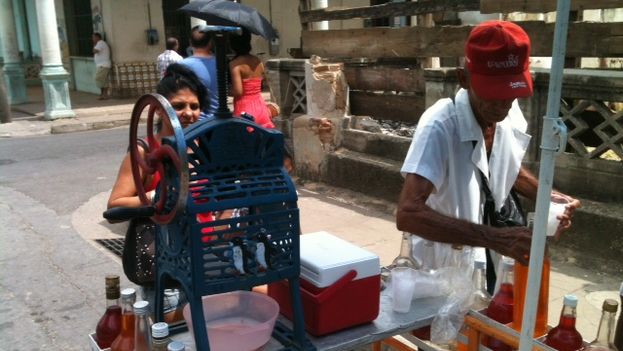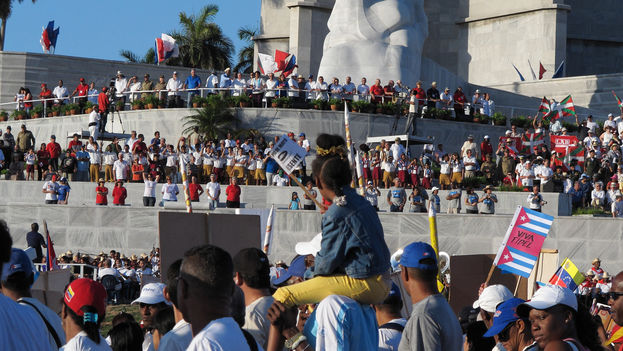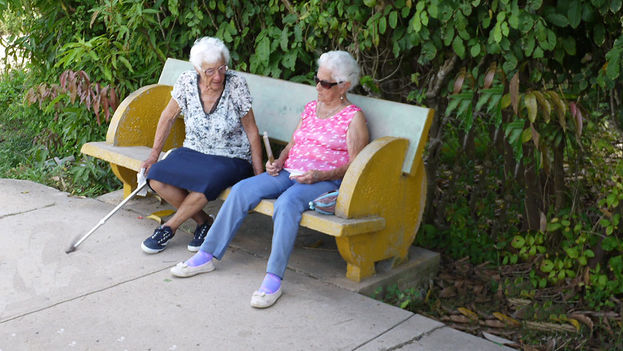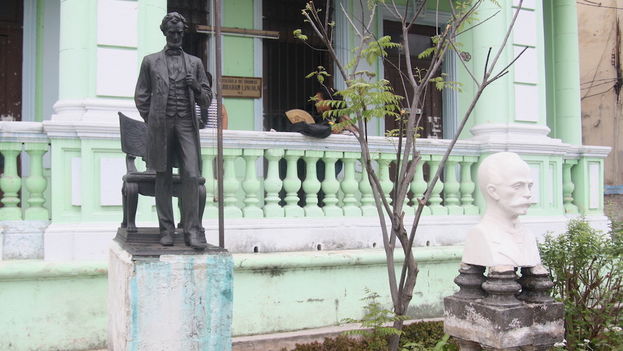The backgrounds of the self-employed have their roots in small business, family business owners and street vendors that swarmed throughout the Island until their extermination by the revolutionary guillotine called The Revolutionary Offensive of 1968. However, this is a breed that will sprout from the ashes, at any opportunity, a quality that is, at one and the same time, the secret of its survival and its curse because if there is anything that totalitarian power distrusts it is individuals with aspirations of independent entrepreneurship, especially if they have demonstrated their ability to thrive outside the “protection” of the flock.
Thus, at the smallest fissure in the system’s monolithic structure there would follow a fast flourishing trade with glimpses of prosperity for the most daring children of that wicked caste, whose autonomy allowed them to distance themselves somewhat from the political-ideological commitments hanging over the rest of society, and the respective official raids would then follow. continue reading
Perhaps the most famous purifications were the so-called Operación Pitirres en el Alambre (Operation Kingbirds on a Wire) and Operación Adoquín (Operation Cobblestone), which hurled all the fury of Castro I against the peasants of the “free market” and the artisans of the Cathedral Plaza respectively.
The egregious one had decided that those emancipated individuals were becoming too rich, maybe almost as rich as the leaders of the Communist Party. It was necessary to root out evil and demonize the nouveau riche, who were immediately re-christened “flower pots,” imprisoned, dispossessed, prosecuted, and convicted, as a general warning. At the same time, commercial activities of the self-employed were suppressed until the 1990’s, when the crisis stemming from the soviet collapse and the ensuing famine among the Cuban population left the government no choice but to allow their activities once again.
By the mid to late 1990’s foreign investment and capital inflows began, giving a respite to the Castro regime and, at the end of the decade, the almost providential appearance of Hugo Chávez on the stage breathed new life into the regime. It then immediately “froze” the issuing of new licenses for the self-employed sector, while raising taxes on those who already had licenses plus the pressures of inspectors contributed to the contraction of the sector.
Currently, the government has created new support and control mechanisms to keep a short leash on the “private ones”
Currently, with the sector’s most recent revival by the hand of so-called Raulista reforms, the government has created new mechanisms of support and control to keep a short leash on the “private ones.” A large body of inspectors – a whole army of corrupt officials – and a “union of the self-employed” allow for monitoring, keeping individual incomes at low levels while retaining the ability to mobilize on the side of the political discourse. Innate entrepreneurs and the government remain antagonists that tolerate but mutually rebuff one another.
One witness among thousands
Sandra lives in a small town in Matanzas and became self-employed 21 years ago. She is a survivor of that outpost of proto-entrepreneurial Cubans who, in the worst years of the 1990’s, decided to take a risk in tackling the economic crisis under the government’s “opening” for the self-employed. It was then that Sandra was licensed as a seller of handicrafts and other trifles. She was very young then, but she had a nose for business and she was also good with people, so she found a niche in the marketing world, sought and found her own suppliers and soon mastered all the intricacies of the trade, including contacts that alerted her about police and inspection operations within a time frame sufficient to hide far from her selling space anything she was not licensed to offer for sale.
Despite all the alarms, a short while after, she was able to start a small pizza business, baking them in an an old electric oven at a time when any kind of food offered for sale was sure to be a hit. To tell the truth, Sandra sold whatever she found, from clothing, make-up or video equipment to frozen yogurt or plaster ornaments. She found out that she was much better off working by and for herself than continuing at her job as secretary at a government office at an obsolete typewriter, typing information that nobody would read, only to get 148 Cuban pesos a month, while a mere bar of bath soap manufactured in Cuba cost 50 Cuban pesos.
It was much better to work by and for herself than to continue at her job as a government secretary for 148 Cuban pesos a month.
Today Sandra is a veteran self-employed, owns her own home and has forged ahead with her two daughters. However, though she now only sells custom jewelry, just as she is licensed to do, she still feels like she walks the tightrope, and assures us that she cannot make ends meet.
“There is a war against us (the self-employed). Our taxes go up for whatever reason and it is hard to see the benefits. In country towns, like mine, things are even worse. I have to travel to Havana to buy merchandise and bring it home, risking being detained by police, taken to the station and having to justify everything with paperwork. If you don’t have the papers or contacts to come to your aid, they will seize everything. Imagine that! If I bought my merchandise at the government stores, how much would I have to sell it for at home to not only clear a small profit, but just to break even? And to top it all off, the Government invents more legal mechanisms every day to get more money out of you.”
Indeed, in recent years they have increased our taxes briskly. If when she started out Sandra paid the almost symbolic amount of 40 pesos in tax for the sale of small handicrafts, the current monthly tax is 349 pesos per license, plus 10% of sales (which the authorities estimate at over 1,000 pesos a week, implying a tax of 400 pesos each month), plus 60 pesos for social security. Add to that 300 pesos for rent for the site where she conducts her business and she ends up paying 1,109 pesos a month. In addition, there is the annual tax return on sales which must be paid promptly to the National Tax Administration Office (ONAT) each January, which amounts to paying twice for the same sales: monthly and annually.
In recent years the sector taxes have multiplied rapidly
And this is not the only reason why Sandra and many others feel cheated. At the beginning of the so-called “Raulista” reforms, the speech by the General-President stated that the self-employed were honest workers who paid taxes to the government while generating jobs, therefore they deserved all the respect and the rights of any worker. Among those rights, he said, we should recognize their working years to guarantee them a decent retirement.
Sandra was one of the ones who got excited about this news: she already had 20 years under her belt as a self-employed individual paying her taxes under established law. However, she was told at the ONAT that the measure was not retroactive, so if she wished to count those previous years, she should contribute 60 pesos per month for social security for each of the 18 years she had worked before the official law, however, at the ONAT they explained that this measure was not retroactive, so, if she wanted to have those previous years counted she should contribute 60 pesos per month in social security for each one of the 18 years she had worked before the official change, which, translated into hard numbers, would mean paying 12,960 pesos within three calendar months because “we haven’t established any other way to pay.”
Sandra resigned herself to watching the retirement promise go up in smoke: “If I had almost 13 thousand pesos, I would immediately hand it over to my son-in-law to help him build the raft for all of us to get the hell out of here. No matter how I struggle to better my life, I end up screwed.”
“If I had almost 13 thousand pesos, I would immediately hand it over to my son-in-law to help him build the raft for all of us to get the hell out of here”
This year we have seen yet another way to squeeze the self-employed, under the guise of “sub respondents.” This is a note slipped under the crack of the door of the self-employed when the “computer system” decides that the amount declared is less annual income than has actually been received. This document bears the printed amount that “the system” considers correct, and states the exact debt due to the fiscal authorities. If not paid by the established date, the license will be suspended.
However, there is no control mechanism to establish how much each self-employed person has sold in each case, but the estimated amount in question is not subject to appeal. None of the defendants –all the self-employed in Sandra’s hometown – knows by whom or on what parameters those “sub-declarations” are based. She, for instance, has been taxed an extra 1,600 pesos over and above what she has already paid.
“Some of us went to ask that they clarify this for us, because it had never taken place before, but at the ONAT they tell us that they know nothing, that this is established by ‘the system’. I told them that it’s clear that ‘the system’ is the one that’s not working, we can be sure of that! But, how can we change it?
And while Sandra is not one to give up, she confesses that she already feels tired of such an uneven war. She, who has a technological degree in economics, says that the self-employed worker can’t even count on the legal backing of a signed contract. “When you request a license, they hand you a card and that’s it. You don’t sign anything, they don’t tell you any more than what you should pay in taxes and nobody has an obligation towards you, though you do have the obligation to pay on time all the taxes they impose for an amount they determine, though the government does not invest one cent or risk anything. It’s unfair and abusive. And now they also want to force you to pay union dues, and to march and shout slogans!”
Sandra is convinced that this responds to a government strategy to prevent the self-employed sector from growing and consolidating. That is why there are so many obstacles and so much harassment. “We, the self-employed, are just as repressed as the opposition,” she jokes. And she is not far from the truth in this.
“I told them that it’s clear that ‘the system’ is the one that’s not working, we can be sure of that! But, how can we change it?”
On the other hand, neither she nor her fellow associates have legal options, so many are giving up their licenses and choosing between getting jobs as an employee of a more prosperous self-employed person – perhaps one of those who run restaurants or rent rooms to foreign tourists – entering the illegal market (from which many came), or more radically, emigrating however they can and taking their chances far away from the guarantee of poverty they have in Cuba.
“For now, I will not give up my license after 21 years of struggle. I will simply keep up the façade selling the custom jewelry and will have to conduct other business under the table to catch up. If ‘these people’ will not let me breathe while I’m working, I will have to prosper by being inventive. Because if I’m killing myself working, it is logical I should see some profit. It’s not worth it to be legal: they force you to violate laws. But for now, I am seriously thinking that I should leave with my daughters and my son-in-law. There’s not much left for us here.”
Now, when the winds will once again favor foreign investments, Cuban entrepreneurs continue being excluded from all benefits and try to survive the new cycle of simulated suppression they are suffering. Sandra sums up the situation with an illustrative phrase: “When they hand you a license it’s as if you are picking up a machine gun. From that moment on, you will be living in a permanent war: the war of the government against us.”
But Sandra is wrong about this last part, because the government’s war is against all Cubans.
Translated by Norma Whiting
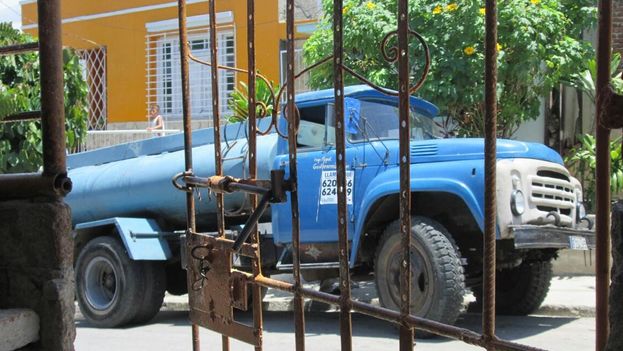
![]() 14ymedio, Yosmany Mayeta Labrada, Santiago de Cuba, 9 May 2015 – The drought has become an undesirable comrade for the residents of Santiago de Cuba. For years, the city has suffered low rainfall, deficiencies in the water supply system, and an erratic distribution policy.
14ymedio, Yosmany Mayeta Labrada, Santiago de Cuba, 9 May 2015 – The drought has become an undesirable comrade for the residents of Santiago de Cuba. For years, the city has suffered low rainfall, deficiencies in the water supply system, and an erratic distribution policy.
